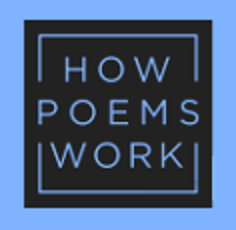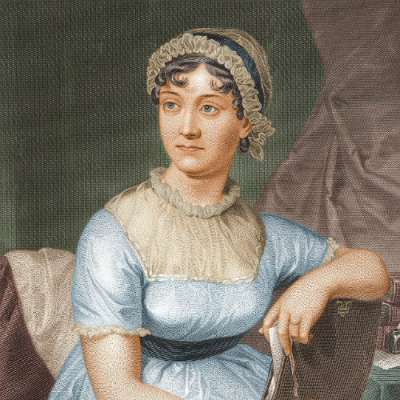Purchasing this product grants the user access to Frankenstein: Online Theory and Criticism, which does not include the text of the novel itself. For information on the Broadview edition of Frankenstein, which includes the novel along with an introduction and an engaging selection of contextual materials, please click here. The Online Theory and Criticism website provides a selection of over 30 scholarly articles alongside other resources specifically oriented to the study of Frankenstein, including:
- — A broad range of critical readings of Frankenstein, beginning with ground-breaking feminist readings by Ellen Moers and Sandra Gilbert and extending to readings on race, class, history of science, the context of the French Revolution, and more.
- — Foundational articles by key figures in theory, from Freud to Foucault, which can be applied to the study of Frankenstein
- — Discussion questions for each article on the site
- — Brief introductions to common critical approaches to literature
- — A collection of pertinent visual materials
Click the “Contents” tab for details.
Comments on Frankenstein: Online Theory and Criticism:
“This will be an invaluable resource for all those who wish to read Frankenstein within the context of its textual, social, scientific and cultural history.” — Anne Mellor, University of California, Los Angeles
“I love this website! It is extremely user-friendly and contains an excellent and comprehensive collection of critical readings. The included discussion questions for each article are thought-provoking and focus on the key elements of the article. I found the links associated with the theoretical approaches used in the critical articles particularly helpful, as well as the suggestions for other relevant readings. The Foundational Theory Articles section will be particularly beneficial to students at the onset of their research. The images within the Visual Material section create a cultural and geographic landscape that brings Frankenstein to life for the reader. I almost wish I was a student again so that I could use this site as a resource for my critical essays.” — Jenifer Mohammed, University of Manitoba
“[This website] provides easy access to an exciting and wide-ranging set of essays and visual materials that reveal the text’s rich critical history and powerfully embed that history in literary theory generally. This is a resource that is easy for students to navigate while drawing them ever deeper into an intellectual engagement with the text.” — David Sandner, California State University, Fullerton
“Broadview’s edition of Frankenstein in book form already includes exceptionally useful additional resources. The online edition adds visual, critical and theoretical materials representing the spectrum of responses to this nearly infinitely reinterpretable text. With so much to choose from, the carefully selected contents are both classic and surprising, ample and approachable. This online edition gives students the tools to connect Frankenstein to history, theory and culture. It will be equally valuable in introductory, theory, genre and Romanticism courses.” — Tristanne Connolly, University of Waterloo
“As a supplement to Broadview’s already excellent volume, [this website] will help to broaden the context through which students approach Mary Shelley’s novel. The critical essays, foundational theory articles, and brief glossary of theoretical movements should open the text up to invigorating debate in the classroom … not only for courses on Romanticism, or the history of the novel, but also for introductions to literary theory. Each critical and theoretical article on the site comes with a set of guiding questions, directing students to consider the implications of what they have read for their own explorations of the text.” — Daniel Hannah, Lakehead University
“The site is so comprehensive and intellectually engaging that it’s hard for me to imagine teaching Frankenstein again without relying on it. It’s clearly laid out and easy to navigate. It brings together materials on the novel that until now have been widely dispersed. The section on ‘Visual Materials’ is especially strong, particularly since so much of what we think we know about Frankenstein comes from visual materials. The ‘Articles on Frankenstein’ section nicely balances classic discussions of the novel with more recent approaches, such as Queer Theory. The flexibility of the site is also impressive: while many of the materials can help undergraduates understand Frankenstein on a deeper level, sections on ‘Foundational Articles’ and ‘Introduction to Theory’ would be invaluable in a graduate seminar.” — Kenneth Brewer, University of Texas, Dallas
“I’m very excited by the possibilities presented in this online supplement. In my opinion, this makes what is already the best classroom text of Frankenstein into an essential tool for introducing students to theory through a broad variety of critical studies. I especially appreciate the selection of Foundational Articles.… Broadview’s selections strike me as exemplary in this regard. I expect that students and teachers alike will also find these resources useful in a number of different contexts beyond the study of Frankenstein. To be honest, I was unable to look through these materials without already beginning to plan how I would use them in future classes….” — Traynor Hansen, Seattle Pacific University
“This amazingly comprehensive and rigorously dynamic site brings Shelley’s narrative of the Creature as wondrously alive as do Dr. Frankenstein’s powers! Broadview readers of this seminal nineteenth-century text might now readily conjure this text’s story and ideas via timely scholarship on a full range of reading approaches, including the mother, science, religion, monster and race theory, and queer identity, even as they enjoy access to this gothic tale’s visual and literary references and its uncanny pictorial rendering of the beautiful and sublime as travelogue.” — Rebecca W. Boylan, Georgetown University
The material on this website is protected by copyright and is available exclusively to those who have been provided access by Broadview Press. Broadview Press has cleared copyright (and paid the associated permissions fees) for material posted on this site. Those permissions, however, are often granted for a limited term or are otherwise restricted; we are thus unable to guarantee permanent access either to specific selections or to the site as a whole.


